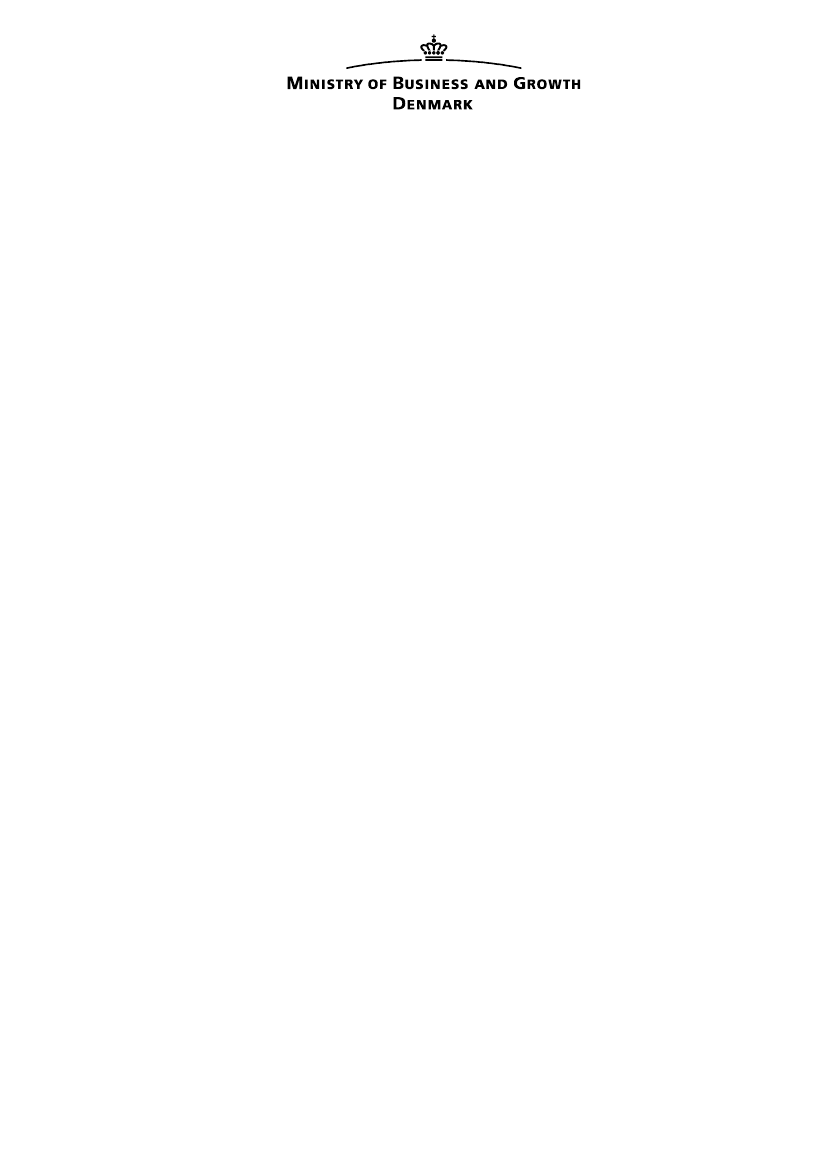Erhvervs-, Vækst- og Eksportudvalget 2011-12
ERU Alm.del Bilag 246
Offentligt
Jonathan FaullDirector General of theEuropean Commission for Internal Market and ServicesEuropean CommissionBERL 10/034B - 1049 Brussels
PERMANENT SECRETARY OFSTATE FOR BUSINESS ANDGROWTH
Response by the Danish government to the discussion paper on the
debt write-down tool – bail-in – put forward by the Commission
MINISTRY OF BUSINESS ANDGROWTH
Slotsholmsgade 10-12DK-1216 Copenhagen K
Tel.
+45 33 92 33 50+45 33 12 37 78
Dear Jonathan Faull,The Danish government supports the initiative by the European Commis-sion to put in place an effective crisis management system to cope withdistressed credit institutions across Europe. Denmark strongly urges theCommission to put forward the proposal as soon as possible and standsready to prioritize the file during the Danish Presidency. Denmark alsowelcomes this technical consultation.The Danish government strongly supports the inclusion of the debt write-down tool (bail-in) in the Commission’s proposal for a European frame-work for bank recovery and resolution.Denmark has already established a credible resolution regime of dis-tressed banks, taking effect in October 2010, which provides the legal setup for an orderly winding up, including the possibility to bail-in creditorsand large depositors and thus protecting the governments’ budget fromcosts arising from a bail out. The resolution regime includes the bail-intool as well as other tools in order to achieve flexibility in the handling ofdistressed banks.The explicit aim of the voluntary Danish resolution regime is to seek pri-vate solutions before a resolution through Finansiel Stabilitet A/S (thestate owned winding up company), in order to support financial stabilityand to avoid, if possible, losses for uncovered creditors of the distressedbank. Bail-in must only be used after private solutions has been depleted,and the Danish resolution scheme rests firmly on a basis of voluntariness:Property rights are protected through a distressed bank having to declareit’s wish for resolution under the scheme.From a Danish point of view a transparent and credible possibility of debtwrite-down will be necessary to ensure that creditors of especially large
Fax
2/2
credit institutions perform a thorough analysis of the credit risk beforegranting loans to a credit institution. We therefore welcome the introduc-tion of the possibility to use debt write-down tools in an open as well as aclosed bank model. The financial crisis has showed that the possibility oflosses to shareholders does not sufficiently prevent moral hazard in creditinstitutions. Therefore broader measures are needed such as the possibil-ity of debt write-down. In addition debt write-down provides for the reso-lution of distressed credit institutions without recourse to public financeand government intervention.It is important that no creditors are worse off under the resolution regimethan in an ordinary liquidation process, and that bail-in fully respects theranking of creditors’ claims under insolvency law. For this reason shortterm liabilities should not be exempt from bail-in.The well-functioning of the covered bond market is vital for financialstability in Denmark and the confidence of the covered bond investors inthe system is therefore of highest importance. One of the main factors inthis regard is the assurance of the investor that timely payment will bemade to the largest possible extent. Holders of covered bonds shall ac-cording to CRD and UCITS benefit from a privileged status in case ofbankruptcy. It should therefore be made clear in the coming directive thatcovered bonds should not be subject to debt write-down.The Commission raises a number of questions in the discussion paper onthe possible introduction of the debt write-down tool. The Danish gov-ernment reserves its position on some of these questions whereas com-ments on other questions are stated in the attachment.Yours sincerely,
Michael Dithmer


